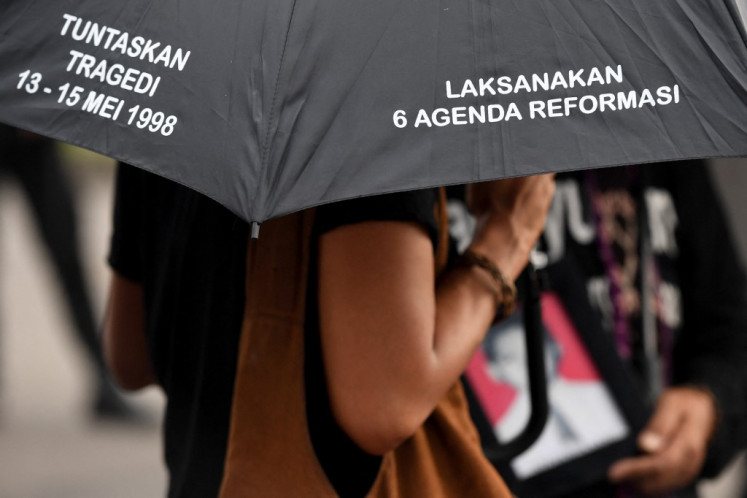Popular Reads
Top Results
Can't find what you're looking for?
View all search resultsPopular Reads
Top Results
Can't find what you're looking for?
View all search resultsLocal health centers adopt syringe exchange
Several community health centers in Bali say they are ready to carry out a syringe exchange program (NEP), in which injecting drug users are provided with clean syringes to reduce the spread of HIV/AIDS
Change text size
Gift Premium Articles
to Anyone

S
everal community health centers in Bali say they are ready to carry out a syringe exchange program (NEP), in which injecting drug users are provided with clean syringes to reduce the spread of HIV/AIDS.
Six community health centers in several regencies in Bali, including three in Denpasar, announced they will offer the service.
Methadone clinic at Sanglah general hospital and Kerobokan prison will also offer the service.
NEP is part of the Harm Reduction Program, designed to prevent the spread of HIV/AIDS among injecting drugs users (IDU). There are an estimated 748 IDUs living with HIV/AIDS in Bali now.
IDUs are the second-highest heterosexual risk group in terms of vulnerability to HIV/AIDS.
I Kadek Sukantara, coordinator of the Harm Reduction Program in Bali, said many IDUs faced difficulties obtaining NEP therapy because of limited healthcare facilities in Denpasar. Many of them are still reluctant to open up about their disease, he said.
“Now they can obtain harm reduction therapy from nearby community health centers,” Sukantara said.
NEP provides therapy for people living with HIV/AIDS and clean syringes for IDUs.
Harm reduction refers to a range of public health policies designed to reduce the harmful consequences associated with drug use and other high risk activities.
The number of IDUs in Bali has been decreasing over the last few years. Currently, only Dua Hati Foundation runs an outreach program for IDUs, in Denpasar, Badung and Tabanan.
A review performed by HIV Cooperation Program for Indonesia (HCPI) — AusAID identified a large degree of overlap in clients. However, a HCPI study, organized by three NGOs in Bali — Yayasan Kesehatan Bali (Yakeba), Yayasan Hatihati (now Dua Hati), and Yayasan Mata Hati — showed that the number of IDUs had consistently decreased to 700-800 in 2009 from about 2,500 in 2003.
It stated that factors that may have contributed to the decline included IDU fatalities, and a growing trend toward non-injecting drugs.
The research recommended that the high mortality among IDUs needed to be addressed by increasing efforts to detect HIV early, and providing care, support, and treatment (CST) programs.
“The majority of IDUs died of HIV/AIDS,” he said.
This year, Sukantara said, Bali would need to provide about 43,000 sterile needles for IDUs.
He said many drug users did not have access to proper therapy and therefore went back to using drugs, and that many committed crime.
“Today, it is still dilemmatic to deal with drug users who are involved in crimes.”
IKON, an association of drug victims, is now actively campaigning for legal justice against drug users, Sukantara said.
“If they are arrested and put in jail they will infect other prisoners,” he said.
He cited the case of Padmi, a young female drug user, who was arrested by the police for possessing drugs. She admitted that the drugs were for her own consumption, and was tried and sentenced to four years’ imprisonment.
“I have been going through hardship after my husband died,” Padmi said.
Her husband worked as an activist who helped drug users and HIV/AIDs patients.
IKON has campaigned to reduce punishment for drug users and to replace punishment with compulsory rehabilitation.








